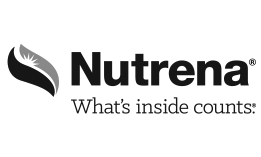
Horse Health and Wellness Series: Get Prepared!
By the USHJA Education Department
|
USHJA's bimonthly series on horse health and wellness is based on guidance and input from the USHJA Horse and Rider Advocates Committee. This series aims to provide members with information they can use, along with the regular guidance of a veterinarian, to help keep their equine partners happy and healthy throughout the year. Springtime brings warmer weather and beautiful scenery, but it can also bring volatile weather events and other natural disasters. As next week marks Hurricane Preparedness Week from May 7 to 13, the USHJA Horse and Rider Advocates Committee reminds members to use that week to create or review their disaster preparedness plan for any natural disaster events, but especially hurricanes. The National Weather Service recommends preparing each day of Hurricane Preparedness Week as follows:
Equestrians must not only prepare themselves and their families, but also consider plans for their horses. According to Ready.gov, owners of large animals should:
To provide more specific guidance to USHJA members, USHJA Horse and Rider Advocates Committee member Gay Talmey caught up with Julie Winkel, a USEF licensed judge, USHJA committee member and longtime horse trainer and clinician, about her personal experience dealing with the aftermath of natural disasters as an equine professional. Winkel's farm in Reno, Nevada, fell victim to two very different natural disasters: in 2012, a wildfire devastated her home and farm, and again in 2017, she dealt with widespread damage from extreme flooding, which although not applicable in Winkel's case, is often common in the aftermath of a hurricane. Winkel learned that for any natural disaster, it is best to have a well-rehearsed evacuation plan and educate family and friends so they may be able to assist if the need arises. After experiencing the devastating effects of both a wildfire and a flood, Winkel recommends keeping these things in mind:
Additionally, microchipping your horses, which is set to be a competition requirement at USEF-rated hunter/jumper competitions in 2019, is a simple process that can help ensure your horse is correctly identified in the event you are separated during a disaster. To help others be better prepared for all types of disasters, Winkel began organizing free clinics at her farm to educate neighbors, first responders, and law enforcement on equine safety and teach important skills that would help aid in an evacuation of animals in an emergency situation. "The main thing we learned was, in addition to having an evacuation plan, the importance of educating [others] on the nature of horses, and how to properly handle them," said Winkel. While the hope is that the preparation never has to be put to the test, if you are affected by a natural disaster, there are a variety of resources available. The USHJA Foundation Horseman's Assistance Fund offers emergency financial support for members following an accident, catastrophe or natural disaster. "USHJA Foundation was our number one financial aid in both the fire and the flood disasters, and we are forever grateful for this resource," said Winkel. She stressed how much she appreciated the outpouring of help and support from the equestrian community when these disasters struck her. She was touched by the cohesiveness of the horse community, and their willingness to come to her aid. For more information about how the USHJA Foundation can help you in an emergency or to support their work, visit the USHJA Foundation. Preparing for the worst-case scenario will help ensure the best-case scenario results in the event of a natural disaster. Typically such events don't provide those affected with time to plan, which makes having a plan in place potentially lifesaving for families and horses. Special thanks to the USHJA Horse and Rider Advocates Committee, especially committee member Gay Talmey, whose reporting contributed to this story. |
Test YourselfDo you know your risk and what to do to be prepared? Click through this interactive guide to identify ways you can be prepared for a disaster in your area! Resources: Support in the Aftermath |




